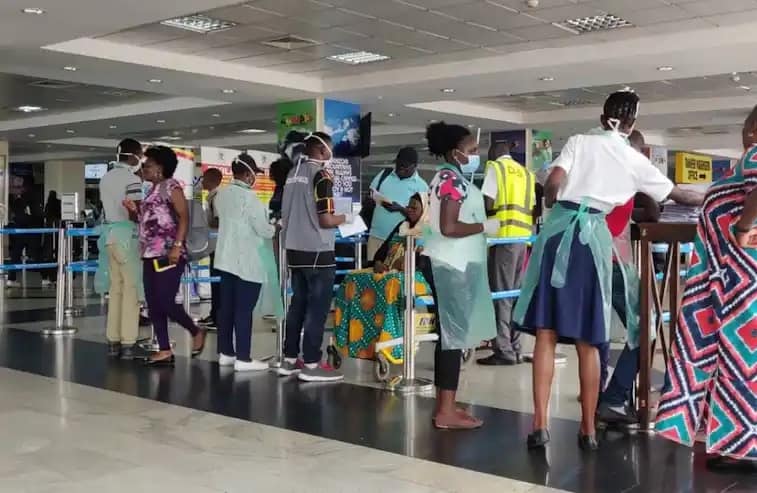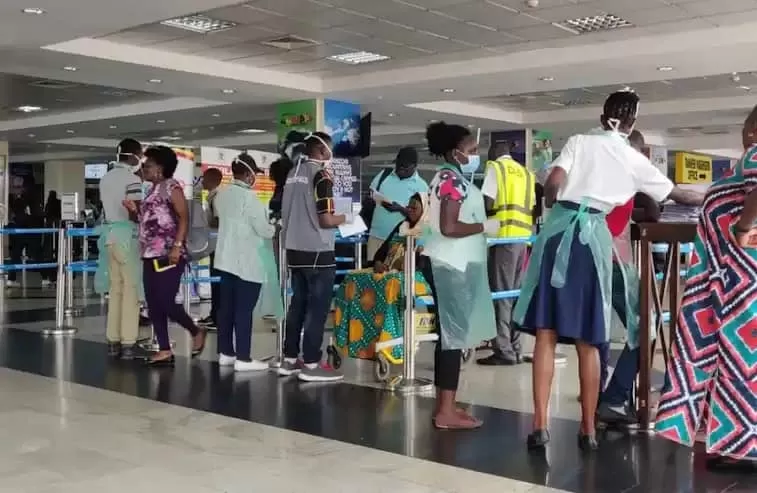

Last updated on September 11th, 2021 at 02:39 pm
The coronavirus is finding new victims worldwide, in bars and restaurants, offices, markets and casinos, giving rise to frightening clusters of infection that increasingly confirm what many scientists have been saying for months: The virus lingers in the air indoors, infecting those nearby.
If airborne transmission is a significant factor in the pandemic, especially in crowded spaces with poor ventilation, the consequences for containment will be significant.
Masks may be needed indoors, even in socially-distant settings. Health care workers may need N95 masks that filter out even the smallest respiratory droplets as they care for coronavirus patients.
Ventilation systems in schools, nursing homes, residences and businesses may need to minimize recirculating air and add powerful new filters. Ultraviolet lights may be needed to kill viral particles floating in tiny droplets indoors.
The World Health Organization has long held that the coronavirus is spread primarily by large respiratory droplets that, once expelled by infected people in coughs and sneezes, fall quickly to the floor.
But in an open letter to the WHO 239 scientists in 32 countries have outlined the evidence showing that smaller particles can infect people, and are calling for the agency to revise its recommendations.
Even in its latest update on the coronavirus, released June 29, the WHO said airborne transmission of the virus is possible only after medical procedures that produce aerosols, or droplets smaller than 5 microns.
Proper ventilation and N95 masks are of concern only in those circumstances, according to the WHO. Instead, its infection control guidance, before and during this pandemic, has heavily promoted the importance of handwashing as a primary prevention strategy, even though there is limited evidence for transmission of the virus from surfaces. (The Centers for Disease Control and Prevention now says surfaces are likely to play only a minor role).
Dr Benedetta Allegranzi, the WHO’s technical lead on infection control, said the evidence for the virus spreading by air was unconvincing.
People generally “think and talk about airborne transmission profoundly stupidly,” said Bill Hanage, an epidemiologist at the Harvard T.H. Chan School of Public Health.
“We have this notion that airborne transmission means droplets hanging in the air capable of infecting you many hours later, drifting down streets, through letter boxes and finding their way into homes everywhere,” Dr Hanage said.
Experts all agree that the coronavirus does not behave that way. Dr Marr and others said the coronavirus seemed to be most infectious when people were in prolonged contact at close range, especially indoors, and even more so in superspreader events — exactly what scientists would expect from aerosol transmission.
(TheObserver)
US Secretary of State Marco Rubio ordered South African Ambassador Ebrahim Rasool to leave America by March 21 because he…
Early 2025 ends with IPL fever in India and cricket fans receive good news of an international schedule full of…
National teams from Africa advance their World Cup qualification pursuit as they take part in Matchday 5 of the qualifiers.…
Creative Africa Nexus (CANEX) is running the Book Factory Prize for Publishing in Africa again to award $28,000 to African…
Canadian companies have expanded their presence as major African mining stakeholders and invested more than $37 billion. Africa holds the…
The South African government wants people to plant one million trees across the nation within a single day on September…
This website uses cookies.